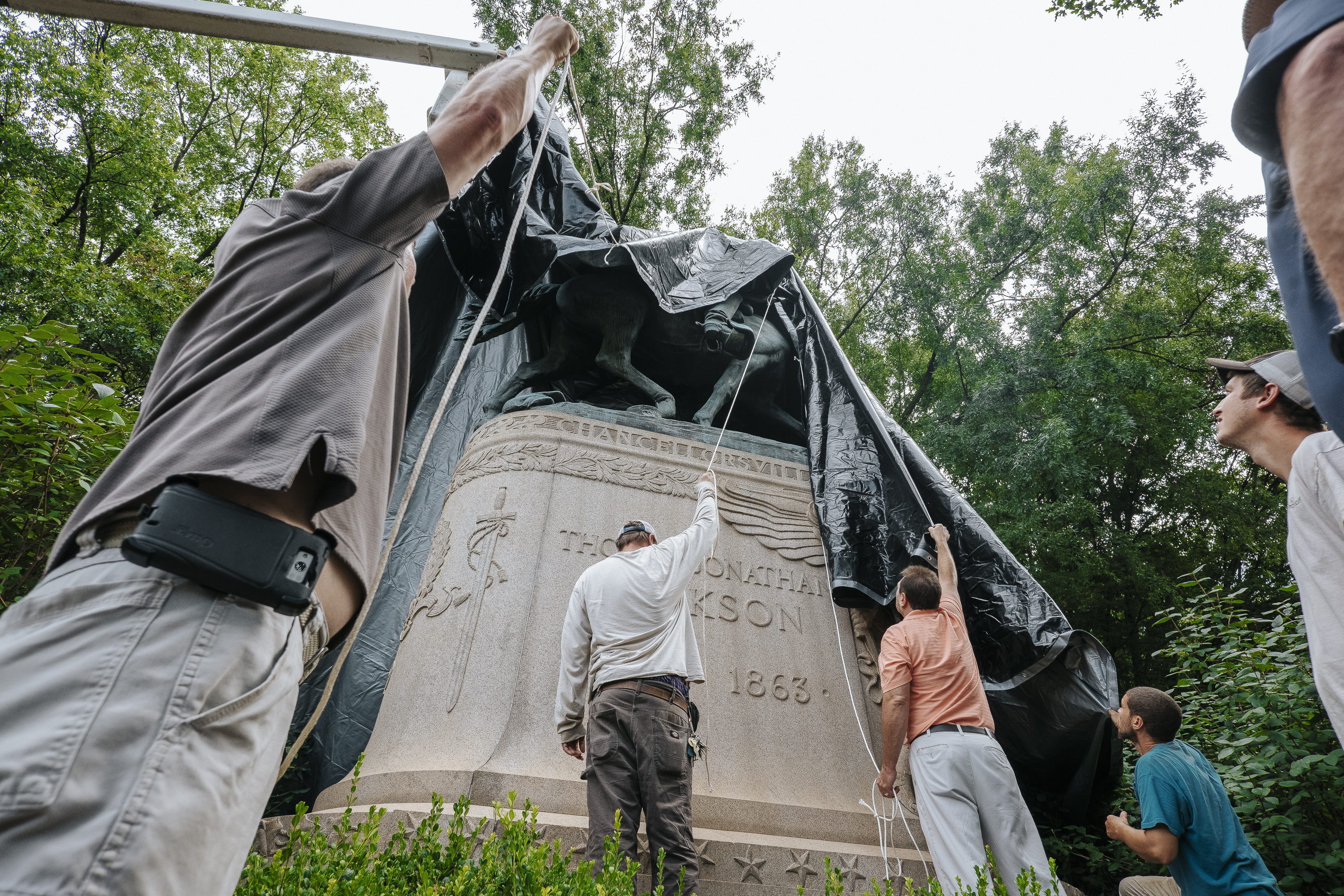This is an extraordinary time. Historically oppressed people and their allies are transforming our world. Peoples around the globe are increasingly coming to terms with histories that have been hidden; with the egregious legacies of white supremacy; with the realization that unless and until Black and Brown lives matter, all lives do not matter.
All over the world we see increasing transformations of monuments, memorials, building names, and other spaces identified with histories of harm such as violence, slavery, colonialism, and environmental disaster. As laws protecting monuments to former Confederate or imperialist leaders are overturned and statues removed; as the histories of buildings and programs honoring men who propagated white supremacy are uncovered and revisited; as recognition and honors are finally being given to formerly hidden figures; change is becoming an everyday reality.
But many communities continue to struggle over whether to leave such spaces alone, alter, or reclaim them in entirely new ways. And progress in telling more complete histories and acknowledging historical harms and their effects on today’s institutions and communities has met resistance and opposition in many cases.
IEN’s Transforming Community Spaces (TCS) project, founded in 2016 to address these challenges, is intended to support institutions and communities who have decided to address their histories but for whom the path to do so is unclear, or who face resistance to change of any sort.
TCS is also the umbrella under which IEN’s new Equitable Collaboration framework - itself the expression of decades of thinking and researching our field of practice and the discipline of conflict resolution - has been developed and challenged. What does it mean to have an equitable engagement process on topics so charged with injustice and inequity?
The key product of this effort is Transforming Community Spaces: A Toolkit on Equitable Collaboration for Institutions and Communities. This Toolkit is available as an online resource and may be downloaded as a pdf at transformingcommunityspaces.org. Dedicated to communities who are committed to facing their contested spaces, from statues to historic buildings, to names and dedications, the Toolkit supports institutions and communities who are interested in using a commitment to change as an opportunity to go beyond symbolism, to tell more complete and truthful histories, and to act to change the trajectory of their future.
The Toolkit offers institutions and communities practical tools for addressing issues in ways that center formerly silent voices and stories, that support community learning, that provide for more complete and honest histories, that recognize trauma and promote healing, and that support justice and equity. The Toolkit also highlights examples from a growing number of localities and institutions that have transformed challenging spaces in ways that can serve as inspiration and as practical models.
As a practical resource, the Toolkit highlights six key element of equitable collaboration – collaboration intended to center equity both in the process and in outcomes. These six elements – adaptive, deliberative, inclusive, responsive, trauma-informed, and truth-seeking – guide how community conversations may be designed and conducted, whether through a single meeting, a community dialogue, or a long-term collaborative change process.
The Toolkit itself is a product of a robust engagement process. A diverse national advisory committee helped develop the structure and nature of the content for the Toolkit. A review of a nearly complete draft by multiple highly experienced facilitators of color offered substantial guidance for key additions. The contributions are noted in the Toolkit.
Through multiple trainings and presentations, and one university-level course, IEN has also begun development of a network of facilitators and others who can help communities and institutions design and convene equitable collaboration processes. Thanks to the generosity of the W.K. Kellogg Foundation, the primary funder of the Transforming Community Spaces project, IEN is also currently supporting a local application of a collaborative change process in Kentucky. In addition, planning has begun for a Truth and Transformation Commission for Charlottesville and Central Virginia.
Additional funding for the project has also been provided by the University of Virginia’s Provost, School of Architecture, and Batten School for Leadership and Public Policy.
